 How was I to know that the album that I found at the West Kildonan Library, The Very Best Of The Everly Brothers, which was released c. 1968, consisted of rerecordings. In that the brothers were ahead of their time, think Gord’s Gold, especially the second volume.
How was I to know that the album that I found at the West Kildonan Library, The Very Best Of The Everly Brothers, which was released c. 1968, consisted of rerecordings. In that the brothers were ahead of their time, think Gord’s Gold, especially the second volume. Ok this isn’t about Gordon Lightfoot.
Ok this isn’t about Gordon Lightfoot.Good collections of the Everlys abound. But once I wised up to the bogus nature of my find, I made it a point to get the originals, and it wasn’t such an ordeal. The Cadence recordings, well I got those on a UK Pickwick release, an album called The Everly Brothers Greatest Hits Collection, which I found at A&A Records in Eaton Place.
A&A was just another franchise, with the usual top 40 selection. But that one time, maybe late 70s, they had a shipment of these UK releases, some on Pickwick, and they had a whole rack full of Quality collections, of which I’ve written before.
Anyway it was a double album, with both sides of every Cadence hit by the brothers. Can’t complain. Their Warner Brothers hits come from The Golden Hits Of The Everly Brothers, one of those albums that’s been around forever, and is still around. The collection is rounded off with Gone Gone Gone and Bowling Green, which I got somewhere else, the former off the single, the latter I think from a promotional album, but I lie after all, I replaced all the WB tracks with CD copies, picked up from Walk Right Back: The Everly Brothers On Warner Brothers, 1960 – 1969, which I got from, you guessed it, the West Kildonan Library.
In the end I have here 34 of their 36 top 100 hits - not too bad...
The Everly Brothers:
• Bye Bye Love – One of the great statements of total and complete self pity. Covers abound, notably by Simon & Garfunkel and by George Harrison. From the summer of 1957.
• I Wonder If Care As Much – Contending with difficult feelings, the deterioration of a relationship. This is heady stuff for 50s rock and roll. Jackson Browne built a whole career out of this sort of thing. The B side of Bye Bye Love, it spent a week in the top 100 in the summer of 1957.
• Wake Up Little Susie – The tale of the couple that fell asleep in the cinema, and got home super late. Uh huh. The reputation is shot. My how things change. This reached number 1 in the fall of 1957.
• Maybe Tomorrow – Not the Jim Croce song, which anyway was pretty obscure.
• This Little Girl Of Mine – And the perfect girl she is. From the winter of 1958.
• Should We Tell Him – A guy and his girl are faced with the dilemma of what to do about the other guy, told from the perspective of the other guy. The B side of This Little Girl Of Mine, it was a small hit in the winter of 1958.
• All I Have To Do Is Dream – One of the great ballads of rock and roll, sung by the brothers who alternate between unison and harmony in a way that sends chills up your spine. So many people covered this, from Richard Chamberlain to The Nitty Gritty Dirt Band. Number 1 in the spring of 1958. “Only trouble is...gee whiz…”
• Claudette – Claudette was a phone receptionist at Duffy’s Taxi, when I was a driver there so many years ago. Written and originally recorded by Roy Orbison, this was the B side of All I Have To Do Is Dream, and a hit in the spring of 1958.
• Bird Dog – A song about the guy everybody despises. Steals the guy’s chick and everything. But he had to stand on tiptoe to kiss the teacher. What age group are we singing about here? And how does his gf feel about being called “my quail?” Number 1 in the autumn of 1958. “He’s a biiiird…”
• Devoted To You – Oh wow, another great slow dance. The B side of Bird Dog and a top 10 hit in its own right in the fall of ’58. Covered by James Taylor and Carly Simon, and by the Beach Boys on their Party! album.
• Problems – I guess there’s always been this perception that kids don’t have real problems, and here are the E Brothers telling us that it just ain’t so. If the litany of difficulties doesn’t persuade you, then that incredible descending guitar figure will. From late 1958.
• Love Of My Life – This was becoming the Everly Brothers ballad formula. The B side of Problems and a hit at the same time.
• Take A Message To Mary – Guy gets nailed, doesn’t want his girlfriend (wife?) to know. Who is he protecting? From the spring of 1959. Dylan covered this on Self Portrait.
• Poor Jenny – Now this is real trouble, a date turned to disaster. Place got raided, Jenny ended up in jail. What kind of places does he take his dates to, anyway. Sounds like the relationship is over. The B side of Take A Message To Mary, from the spring of 1959.
• (‘Til) I Kissed You – Ok, kissing is alright. What’s next. From the fall of 1959.
• Oh What A Feeling – Not the Crowbar song. Another song about the deterioration of a relationship. I already mentioned Jackson Browne right? Think Late For The Sky, or Lightfoot doing If You Could Read My Mind, and then remember that this is late 50s.
• Let It Be Me – The composers of this song, Felice and Boudleaux Bryant, undoubtedly could have retired on the royalties from this song alone. Even Dylan did it. Betty Everett & Jerry Butler put it back on the chart in 1964, and Bobbie Gentry & Glen Campbell did the same in 1969. A straight love song and another great slow dance, and we hear strings here for the first time on an Everly Brothers record. From the winter of 1960.
• Since You Broke My Heart – The pain of breakup.
• When Will I Be Loved – I’ve had all the bad stuff, they sing, when does the good stuff happen. From the summer of 1960. This was a huge hit for Linda Rondstadt in 1975.
• Be Bop A Lula – This cover of Gene Vincent’s hit was the B side of When Will I Be Loved and a hit in the summer of 1960.
• Like Strangers – Another song on the theme of a love gone sour. From late 1960.
• Brand New Heartache – Every time an old flame come ‘round, it’s curtains. Yeah I’ve knows girls like that…
• I’m Here To Get My Baby Out Of Jail – A song a mother sings about her son. This was a recording that Cadence had sitting around, and they released it after the brothers had left the label. It is unadorned – the brothers singing accompanied by a lone acoustic guitar. It made the chart in the fall of 1962.
• Lightning Express – A song about a stowaway, and the suckers who believe his sad tale. The B side of I’m Here To Get My Baby Out Of Jail, featuring the same sparse arrangement.
• Cathy’s Clown – I knew a Cathy a long time ago, and a Kathy also. The Brothers' kickoff hit on Warner Brothers went to number 1 in the summer of 1960.
• So Sad (To Watch Good Love Go Bad) – It is, isn’t it. A touching song about the deterioration of a relationship. From the fall of 1960.
• Walk Right Back – A pop masterpiece, and a hit in the winter of 1961. Redone by Anne Murray in the late 70s.
• Lucille – The brothers have their own ideas about how to do Little Richard. They clean it up of
 course; “sister” becomes “daddy.” This was the B side of So Sad (To Watch Good Love Go Bad) and a hit in the fall of 1960.
course; “sister” becomes “daddy.” This was the B side of So Sad (To Watch Good Love Go Bad) and a hit in the fall of 1960.• Stick With Me Baby – We’ll find a way, overcome the odds - optimism, as it could only exist in a rock and roll song. The B side of Temptation was a hit in the summer of 1961.
• Always It’s You – This is really All I Have To Do Is Dream redux, right down to the tremolo guitar. The B side of Cathy’s Clown, and a hit in the summer of 1960.
• Temptation – There are many songs called “Temptation” and this is one of them. Pure lust. From the summer of 1961.
• Ebony Eyes – It was that streak of death-rock that happened in the early 60s; I think it was rock and roll’s first, misguided I think, attempt to come to deal with serious subject matter, and what’s more serious than death. There was Teen Angel by Mark Dinning, there was Tell Laura I Love Her by Ray Peterson, there was Last Kiss by J. Frank Wilson, a rather late entry. And there was Ebony Eyes by The Everly Brothers. The hero of our tale was serving his country, and so he arranged to marry his girl (his “ebony eyes”) at the base, because he didn’t have time for leave, or something. And so the chaplain authorized him to “send for my ebony eyes.” I can just see them arriving in a little jar. Anyway, she dies. Her plane goes down. He knows when an announcement on the PA tells everyone who has friends or relatives on flight 103 to attend the chapel across the street. How convenient that there’s a chapel across from the airport. This soap opera, the B side of Walk Right Back, was a hit in the winter of 1961.
• Crying In The Rain – Hide how you feel, that’s how it is when you’re a guy maybe, especially if how you feel is sad. A common theme – think Tracks Of My Tears, Two Faces Have I, The Great Pretender, etc etc. From the winter of 1962.
• Don’t Blame Me – The avoidance of personal responsibility in matters of romance is seen here as an expression of fate, but the repercussions may be serious. Still, this *is* romantic. From the fall of 1961
• That’s Old Fashioned (That’s The Way Love Should Be) – The old ways are always the best? This is a brassy track, with old fashioned horn charts. From the summer of 1962.
 • I’m Not Angry – Now he sure does sound angry, and the lyrics vindictive as all get out, but the singer proclaims that he’s not angry, he’s “just hurt.” And I believe him. There’s a lot of overlap there. This is a profound psychological portrait of complicated emotions. Not the Elvis Costello song.
• I’m Not Angry – Now he sure does sound angry, and the lyrics vindictive as all get out, but the singer proclaims that he’s not angry, he’s “just hurt.” And I believe him. There’s a lot of overlap there. This is a profound psychological portrait of complicated emotions. Not the Elvis Costello song.• How Can I Meet Her – He disses her, and he wants nothing more than to meet her. Yet another exploration of complicated emotions. The B side of That’s Old Fashioned (That’s The Way Love Should Be), and a hit in the summer of 1962.
• Muskrat – This is a kind of folksong that turns up a lot; there’s a version by Buffy Ste. Marie, and one by Chilliwack, that I can think of offhand. I think both of them are called Groundhog, though. From the fall of '61, the B side of Don't Blame Me.
• Gone Gone Gone – Here is where the brothers rock out. From late 1964, they were competing with the UK bands by this point.
• Bowling Green – Their last top 100 entry, this tale of hometown nostalgia just barely snuck into the top 40 in the summer of 1967, though it reached number 1 on Toronto’s CHUM chart.
 Sal Mineo didn’t have much of a music career. He was an actor, and he played Gene Krupa in The Gene Krupa Story. I know that from a Trivial Pursuit question, and I actually saw The Gene Krupa Story – well I saw part of it, on TV, one night long ago. His Wikipedia article has a list of his movies but no discography. Truth is he actually had 6 records in the top 100, all in 1957.
Sal Mineo didn’t have much of a music career. He was an actor, and he played Gene Krupa in The Gene Krupa Story. I know that from a Trivial Pursuit question, and I actually saw The Gene Krupa Story – well I saw part of it, on TV, one night long ago. His Wikipedia article has a list of his movies but no discography. Truth is he actually had 6 records in the top 100, all in 1957.
 Eddie Cochran died in April, 160, at the age of 22.
Eddie Cochran died in April, 160, at the age of 22.  Today I’m lazy, so I will just reprint the liner notes from the RCA anthology whence I pulled this track:
Today I’m lazy, so I will just reprint the liner notes from the RCA anthology whence I pulled this track: Jimmy Dorsey (his brother was Tommy) was a rare example of big band leader who made the transition from 40s swing to 50s not swing. He managed to have 2 singles (3 songs) on the chart in 1957.
Jimmy Dorsey (his brother was Tommy) was a rare example of big band leader who made the transition from 40s swing to 50s not swing. He managed to have 2 singles (3 songs) on the chart in 1957. Lloyd Price was an R&B singer, he was from New Orleans, and his chart career lasted from 1957 until 1964. His most covered song, and his biggest accomplishment, was Lawdy Miss Clawdy, covered by everyone and his brother, which was a #1 R&B hit in 1952, and which I do not have. Don’t yell at me. I just don’t have it.
Lloyd Price was an R&B singer, he was from New Orleans, and his chart career lasted from 1957 until 1964. His most covered song, and his biggest accomplishment, was Lawdy Miss Clawdy, covered by everyone and his brother, which was a #1 R&B hit in 1952, and which I do not have. Don’t yell at me. I just don’t have it.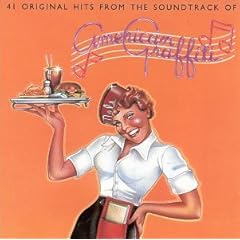 The Del Vikings, an interracial harmony group, had 3 hits, all in 1957. My collection, which I cobbled together, has 2 of them. Come Go With me comes from American Graffiti, and Whispering Bells comes from the Stand By Me soundtrack. Where the others come from I can’t remember, except The White Cliffs Of Dover came right off the single.
The Del Vikings, an interracial harmony group, had 3 hits, all in 1957. My collection, which I cobbled together, has 2 of them. Come Go With me comes from American Graffiti, and Whispering Bells comes from the Stand By Me soundtrack. Where the others come from I can’t remember, except The White Cliffs Of Dover came right off the single.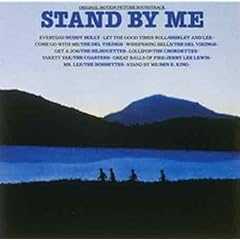

 One hit wonders extraordinaire.
One hit wonders extraordinaire. We’ve encountered this guy, as
We’ve encountered this guy, as 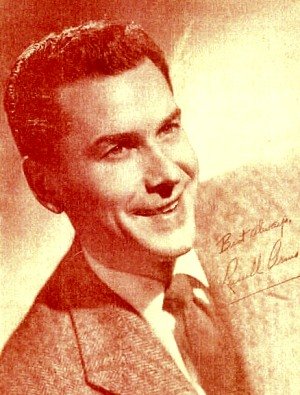
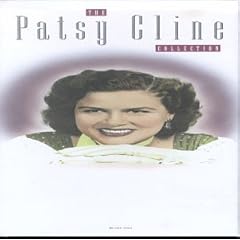 It was at the then new Sir William Stephenson branch of the Winnipeg Public Library that I found The Patsy Cline Collection. It’s huge really, and so I saved a custom selection of tracks. Elsewhere I have the whole thing. That’s for later. But all 13 of her hits are here.
It was at the then new Sir William Stephenson branch of the Winnipeg Public Library that I found The Patsy Cline Collection. It’s huge really, and so I saved a custom selection of tracks. Elsewhere I have the whole thing. That’s for later. But all 13 of her hits are here. and the last in 1972. 8 of those singles were on Coral Records and 3 were on ABC Paramount. I have 3 of those 11 on a cassette-only collection called Pretty Blue Eyes.
and the last in 1972. 8 of those singles were on Coral Records and 3 were on ABC Paramount. I have 3 of those 11 on a cassette-only collection called Pretty Blue Eyes. •
•  One of those quirks of fate: Knox was a Texan, he had a few hits in the late 50 / early 60s, ultimately retired to a farm in southern Manitoba. Heck, we were almost neighbours.
One of those quirks of fate: Knox was a Texan, he had a few hits in the late 50 / early 60s, ultimately retired to a farm in southern Manitoba. Heck, we were almost neighbours.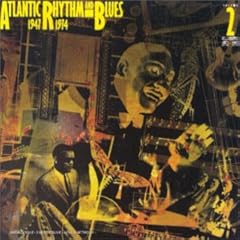 I guess she was kind of the Aretha Franklin of her day, but in reverse. Aretha was too tame until she switched from Columbia to Atlantic, then she hit her stride. Brown was not tame enough, and she had to popify her sound to go mainstream. But Brown only managed to put two songs into the top 40, seven on the top 100, all between 1957 and 1962. Both the tracks I have here are from Atlantic Rhythm & Blues compilations.
I guess she was kind of the Aretha Franklin of her day, but in reverse. Aretha was too tame until she switched from Columbia to Atlantic, then she hit her stride. Brown was not tame enough, and she had to popify her sound to go mainstream. But Brown only managed to put two songs into the top 40, seven on the top 100, all between 1957 and 1962. Both the tracks I have here are from Atlantic Rhythm & Blues compilations.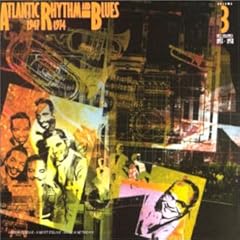
 An early Cameo-Parkway artist and another Elvis wannabe. Cameo did well later with Chubby Checker and Bobby Rydell and Frankie Avalon and Fabian and The Tymes and The Orlons and even ? And The Mysterians. But Gracie’s career was underwhelming; he only ever had three hits, all in 1957, and I have two.
An early Cameo-Parkway artist and another Elvis wannabe. Cameo did well later with Chubby Checker and Bobby Rydell and Frankie Avalon and Fabian and The Tymes and The Orlons and even ? And The Mysterians. But Gracie’s career was underwhelming; he only ever had three hits, all in 1957, and I have two.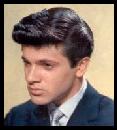 The rush of teen idols is on, not that teen idols are necessarily a bad thing. Just about all of ‘em, Bobby Vee, Johnny Burnette, Gene McDaniels, even Bobby Sherman, had at least one transcendent record, some had more. Fabian was an exception, but we’ll get to him later.
The rush of teen idols is on, not that teen idols are necessarily a bad thing. Just about all of ‘em, Bobby Vee, Johnny Burnette, Gene McDaniels, even Bobby Sherman, had at least one transcendent record, some had more. Fabian was an exception, but we’ll get to him later. They were coming out of the woodwork, first The Tarriers, then The Easy Riders. These guys really laid the foundation for The Kingston Trio, who would be credited with singlehandedly kicking off the folk revival. But we know better…
They were coming out of the woodwork, first The Tarriers, then The Easy Riders. These guys really laid the foundation for The Kingston Trio, who would be credited with singlehandedly kicking off the folk revival. But we know better…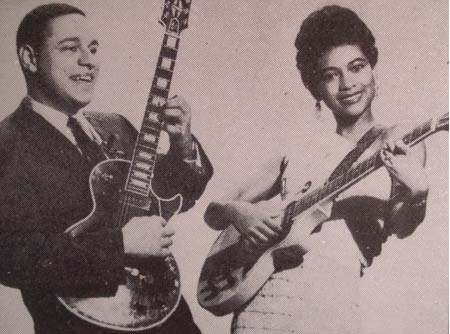 Mickey & Sylvia were not husband and wife. They weren’t even girlfriend and boyfriend. Not according to Mickey, anyway. What they were, according to legend, was teacher / pupil. Sylvia got Mickey to teach her to play guitar, and she convinced him, somehow, that they ought to be a duet.
Mickey & Sylvia were not husband and wife. They weren’t even girlfriend and boyfriend. Not according to Mickey, anyway. What they were, according to legend, was teacher / pupil. Sylvia got Mickey to teach her to play guitar, and she convinced him, somehow, that they ought to be a duet. What starts here, if it didn’t already with George Hamilton IV, is the teen idol phenomenon, and Tommy Sands was close behind. Soon came Ricky Nelson, Paul Anka, Frankie Avalon, Fabian, Bobby Vee, etc etc. Hunter was a Hollywood star – he was in dozens of movies – but his recording career was less than spectacular. He had 7 top 100 singles, all between 1957 and 1959, and only 3 made the top 40.
What starts here, if it didn’t already with George Hamilton IV, is the teen idol phenomenon, and Tommy Sands was close behind. Soon came Ricky Nelson, Paul Anka, Frankie Avalon, Fabian, Bobby Vee, etc etc. Hunter was a Hollywood star – he was in dozens of movies – but his recording career was less than spectacular. He had 7 top 100 singles, all between 1957 and 1959, and only 3 made the top 40. Look at a map of Winnipeg and you’ll see that the downtown streets follow a predictable east-west / north-south pattern, but there’s a point slightly north where the angle shifts, and the direction is more northwest- southeast / northeast-southwest. The twain meets right on the corner of Notre Dame (pronounced English “noter dame”, not French) and Princess, which is Donald going south. Right at that corner is where I discovered Pyramid Records and that was in 1983.
Look at a map of Winnipeg and you’ll see that the downtown streets follow a predictable east-west / north-south pattern, but there’s a point slightly north where the angle shifts, and the direction is more northwest- southeast / northeast-southwest. The twain meets right on the corner of Notre Dame (pronounced English “noter dame”, not French) and Princess, which is Donald going south. Right at that corner is where I discovered Pyramid Records and that was in 1983.
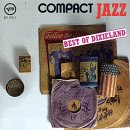 Apparently this guy was big news in the UK. He seems to have been more of a personality than an innovator. The only track I have came from a jazz anthology called Best Of Dixieland, though this track doesn’t sound so Dixieland to me.
Apparently this guy was big news in the UK. He seems to have been more of a personality than an innovator. The only track I have came from a jazz anthology called Best Of Dixieland, though this track doesn’t sound so Dixieland to me. Now Clarence Henry, he had 6 top 100 singles, 1 in ’57, and the rest in ’61 / 62. I have the 3 that made the top 40 (top 20 really) and I got them from some reissued singles.
Now Clarence Henry, he had 6 top 100 singles, 1 in ’57, and the rest in ’61 / 62. I have the 3 that made the top 40 (top 20 really) and I got them from some reissued singles.
